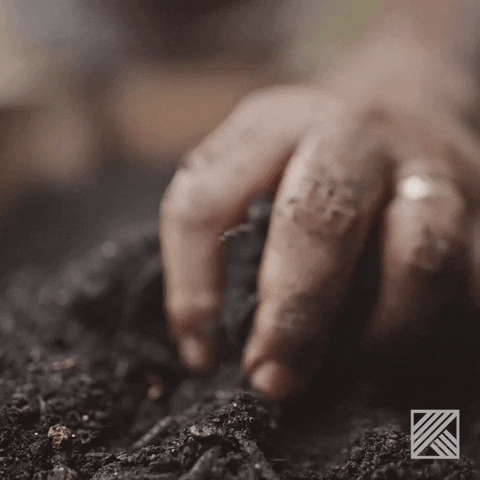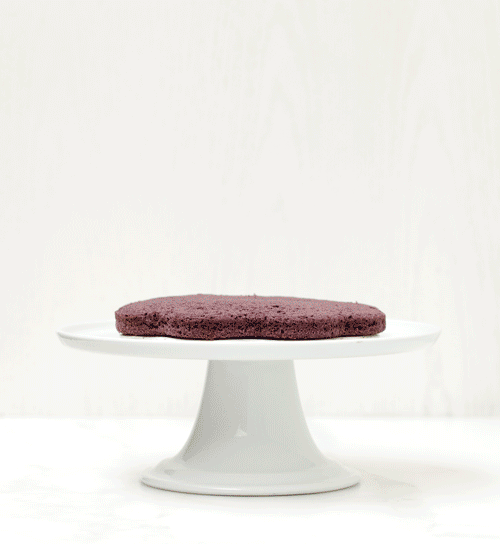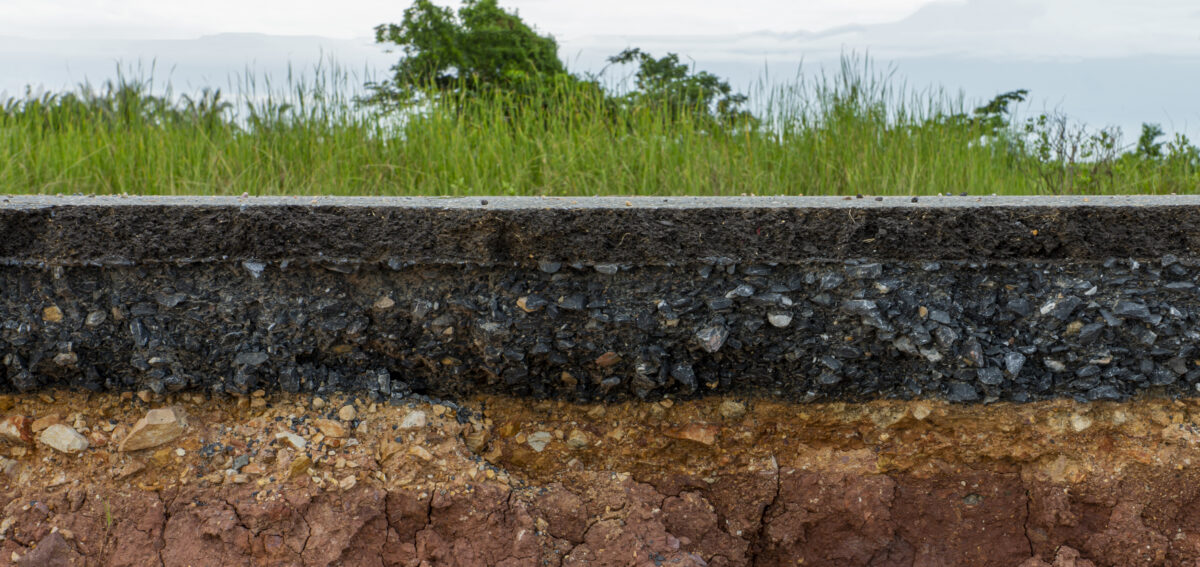December 5th is World Soil Day, and we hope you’ll join us in raising awareness about a story not told often enough: our soil’s unmatched power to feed and save our planet.
At Better Earth, we recognize that our soil is in a dire state. Rapid development and modern agricultural practices seeking higher yields have stripped the land of its nutrients, affecting the health of our ecosystems and ourselves.

Not-So-Fun Fact: We have to eat eight oranges today to derive the same amount of Vitamin A from the one orange our grandparents ate.
We believe compostable products can play a key role in helping recycle nutrients back into the ground. That’s why we strive to ensure our products do not just compost in a commercial composting facility, but truly add value to the composting process. In this post, we’ll share a bit more about what soil is, why it’s being depleted, and what we’re doing about it.
Let’s dig a bit deeper into the soil story.
What is soil?
Think of soil like you would a cake, with rich layers called “horizons.”

The top layers are rich with organic matter and key nutrients, such as the nitrogen, phosphorous, potassium, magnesium and copper necessary for growing crops. These are also the types of nutrients that have been depleted from the soil in recent years due to monocropping and excessive tillage. The further you go, the rockier it gets, until you hit parent material and bedrock.
The Problem Growing Under Our Feet
As Project Drawdown wisely states, our world cannot be fed if our soil is not fed, and we’re losing it at an alarming rate.
Scientists conclude the Earth’s soil is being lost 10 to 100 times faster than it’s forming, according to the most recent IPCC report. And today, scientists estimate roughly half of U.S. agricultural lands and a third of the forests have degraded soils. This is due largely to mismanagement of the land and the growing effects of climate change.
The consequences are massive, including global food insecurity and exacerbated income inequality, and the acceleration of global climate change. In fact, our soil is a mass reservoir for carbon and operates much like our atmosphere and oceans. This means that soil depletion leads to a release of carbon into the atmosphere.
While we have a lot to lose from depleting our soil, we have that much more to gain from protecting it. Carbon sequestration, higher yields of more nutritious foods, drought mitigation and air filtration are just a few of the many benefits directly tied to replenishing the dirt under our feet.
“Left unperturbed, soil can hold onto its stores of carbon for hundreds to thousands of years. The most recent estimates suggest that up to 2,300 gigatons of carbon are stored in the top three meters of the Earth’s soil—more carbon than in all the world’s plants and atmosphere combined. One gigaton is equal to a billion tons.”
―The University of California
Soil, Compost, and Compostables

One of the most turnkey and timeless solutions for replenishing our soil is composting. In this incredible process, we take what is conventionally considered a waste product and, with the help of oxygen, nitrogen and microbes, transform it into a natural, revitalizing fertilizer.
As a compostable foodservice packaging company, we believe that it’s our responsibility to help advocate for the expansion of commercial composting infrastructure and replace more single-use plastics with compostable alternatives that ultimately add value to the composting process.
To this end, we’re proud to collaborate with industry leaders like CompostNow to regularly test our products’ compostability in the field, learn how we can continue to refine our products’ design for compostability, and support them in their efforts to educate and provide composting services in cities across the Southeast.
But what if commercial composting isn’t available yet in your area? You can still transform most of your food waste and yard trimmings into nutrient-rich fertilizer using a backyard composter. Check out this Better Earth blog post to learn how to build your own backyard composter in 10 minutes or less.
We hope you’ll join us in recognizing World Soil Day and celebrating the ground we live on. We invite you to check out the United Nations’ official website for more information and ways you can take action.
